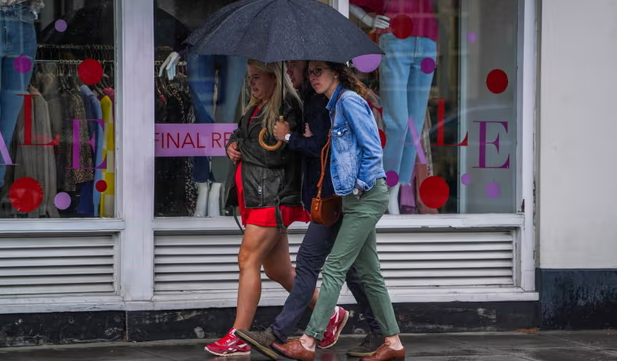Food price inflation also slowed last month to its lowest rate of 2023, as the cost of staples including oils, fats, fish and breakfast cereals went down, helping to ease some pressure on cash-strapped consumers.
Annual price growth for food products fell for the third consecutive month in July to the still elevated level of 13.4%. That was a reduction on June’s 14.6% figure and the lowest since December last year.
While the July shop price figures may give some cause for optimism, the BRC has cautioned that retailers could once again face rising input prices in the coming months, particularly for food, as a result of international events.
Global food commodity prices have been rising in recent days, particularly for wheat and corn, after Russia’s decision to terminate the Black Sea grain deal, which allowed Ukrainian cereals to reach world markets.
Rice prices have also climbed after India banned exports of non-basmati white rice in an attempt to curb domestic inflation, after heavy rain hit domestic crops.
“Further supply chain issues may add to input costs for retailers in the months ahead,” said Helen Dickinson, the chief executive of the British Retail Consortium, adding that food prices would be slower to fall than the cost of other goods.
“Retailers continue working hard to keep falling prices on track. Government must also play its part and freeze business rates from next April, or else risk adding a £400m additional pressure on prices.”
The retail industry, particularly food retailers, have come under pressure in recent weeks over the rising cost of living, prompting supermarket executives to deny they were increasing their profits by keeping food prices high when questioned by MPs in late June.
However, the rate of overall price rises appears to be slowing, with the UK’s annual inflation rate – which takes into account changes in price for goods and services across the economy – falling further than expected in June to 7.9%, amid a sharp drop in petrol costs.
The June figures from the Office for National Statistics showed the first larger-than-expected fall in inflation since the start of the year, leading to improved City forecasts on how much the Bank of England is likely to raise interest rates this Thursday and over the coming year.
Discretionary consumer spending is expected to rise because of the summer holidays and the improving outlook for inflation, according to Mike Watkins, the head of retailer and business insight at NielsenIQ.
However, he added: “Shoppers continue to change how they shop as part of their coping strategies. This includes shopping at different retailers, buying lower-priced items, delaying spend or only buying when there are promotions. This behaviour looks set to continue.”







Responses